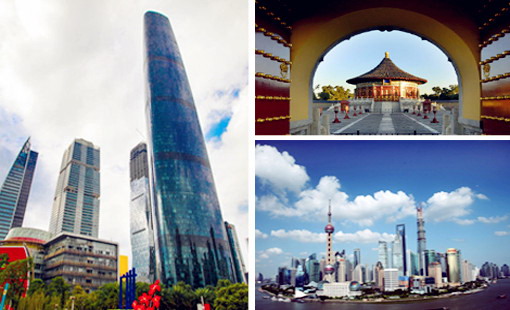Hot times mean hotter prices
Updated: 2013-08-14 00:13
By XIE YU (China Daily)
|
|||||||||||
A persistent heat wave over East and South China is killing vegetables and pushing food prices higher but will not cause dramatic inflation, economists said.
"About 70 percent of the vegetables in our farm have withered because of the high temperatures. We have had to suspend supplying vegetables to more than half of our customers from last week," said Liu Guiyu, manager of Big Water Buffalo, a company that sells organic vegetables through membership services based in Changzhou, in East China's Jiangsu province.
The output of the company amounts to 3,000 kilograms on average every month, but it will drop to 1,500 kg this month because the area is suffering temperatures as high as 40 C.
The land surface temperature exceeds 50 C easily these days, destroying vegetables, especially leaf vegetables such as cabbage and spinach, Liu said.
"We will not be able to restart normal supplies until late September," he added.
The price of fresh vegetables has surged by 20 to 40 percent in Shanghai in the last two weeks. In Jiaxing, a city located in neighboring Zhejiang province, the price of red chili peppers reached 40 yuan a kg on Monday, twice the price of fresh pork, local media Jiaxing Daily reported.
Autumn grain output and pork prices will be important factors affecting inflation, but their prices will not rise dramatically, said Liu Chunyuan, associate dean of the School of Economics at Renmin University.
Liu said sluggish growth and weak demand will not create the possibility of a sharp rebound in inflation.
Food prices have been a major factor creating high inflation in China. The National Bureau of Statistics said food prices were actually not a big element in the consumer price index in early 2011.
Tang Jianwei, an economist with the Bank of Communications, said although food prices may increase in August, the pressure of wider inflation will be offset by a stronger consequential effect.
"The price for fresh vegetables may keep going up if high temperatures linger, but CPI growth will be stable or even fall," said Tang.
The CPI growth rate in August 2012 was 2 percent, higher than the 1.8 percent in July this year. This August will see it even lower, he added.
A report released on Friday by the Chinese Academy of Social Sciences said 53 percent of 100 surveyed economists believe inflation will rise during the remainder of the year. Forty percent of them said prices will stay generally stable.
According to the National Bureau of Statistics, China's consumer price index, a main gauge of inflation, grew 2.7 percent year on year in July, staying flat from June.
Food prices, which account for one-third of the prices used to calculate the CPI, saw steeper growth than other, non-food, categories, including clothing, home appliances and daily necessities.
The price of meat and poultry products rose by 5.9 percent, pushing the CPI up by 0.42 percent. Fresh vegetables are 11.8 percent more expensive, raising the CPI by 0.32 percent.
Today's Top News
Minors going online to buy smokes
Forbidden City bans lighters, matches
Israelis, Palestinians kick off peace talks
Manning 'sorry' for US secrets breach
Snowden case not to affect US-Russia talks
Over 200 dead after Egypt forces crush protesters
Slowing economy takes toll
UN seek private firms' help in curbing HIV/AIDS
Hot Topics
Lunar probe , China growth forecasts, Emission rules get tougher, China seen through 'colored lens', International board,
Editor's Picks

|

|

|

|

|

|





